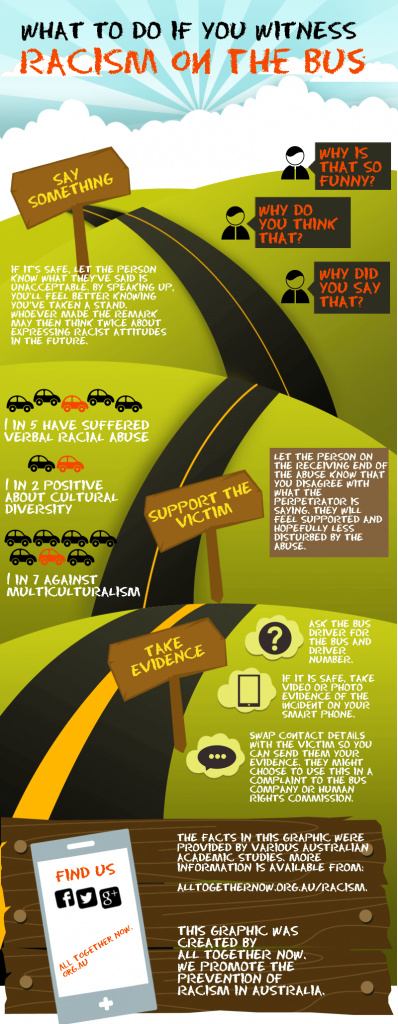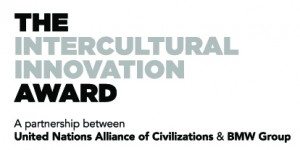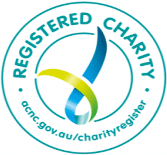HOW TO BECOME AN ANTI-RACIST
Many people seek a quick, direct solution to racism, but the truth is, there is no single activity that can solve racism on its own. Racism is a systemic, complex, and multi-faceted problem that requires many different solutions, interventions, and actions. Racism must be challenged on all fronts.
Racism is not something that can be dismantled quickly. It will require deep social and cultural change over the generations to come. That doesn’t mean you can’t do anything now. Change needs to start somewhere, and change needs to happen all the time. We all need to contribute. Anti-racism is a process and a life-long commitment.
FREE RESOURCE
Take action against racism with this free resource! This free resource provides a concise explanation of racism and some practical tips for becoming an anti-racist. Download the free PDF and share it with others to create positive social change!
DOWNLOAD PDFBecome an anti-racist
As Angela Davis and Ibram X. Kendi have explained, in order to dismantle racism, it is not enough to “not be racist”, we also have to become anti-racist. 1 Proclaiming that you are “not racist” does not require anyone to consider how they should fight racism, whereas being anti-racist means developing a philosophy and a plan of action that directly confronts and challenges racism.2
Indigenous X rightly points out that anti-racism is about more than just having the right anti-racist ideas, values, and morals. It actually requires developing the right skill set to transform your “good intentions” into good outcomes for people who experience racism.3 This requires an openness and commitment to learning and action.
Anti-racism is a process that understands racism as a system producing historical and current oppression and that critically engages with white privilege. Anti-racism is about action. It’s the process of actively identifying and opposing racism.
Being anti-racist means committing to ongoing learning in order to become actively conscious of race and racism and how they function in society and shape our world. Being anti-racist means taking active steps in our daily lives to dismantle racial inequity around us.
This does not need to be overwhelming. There are many things you can do to actively challenge racism.
SOME PRACTICAL TIPS TO BECOME ANTI-RACIST
We can work towards ending racism by challenging and dismantling the structures, systems, actions, and behaviours that perpetuate it. Here are some actionable tips you can do to challenge racism.
BE PROACTIVE
- Learning about racism – Educating yourself and those around you!
- Challenging your own thoughts and actions that perpetuate racism
- Critically look at how you may benefit from racial inequity in society and from any privilege you may have
- Educating yourself about intersectionality. Racism is intersectional, which means it’s related with and compounded by other forms of disadvantage and oppression based on for example gender or class. You can’t be anti-racist without also being for example anti-sexist, anti-classist and anti-homophobic. The struggle for racial equity is part of a broader struggle for equity on all fronts.
- Taking a stand against racism – Speak out! If you witness racism, intervene, if safe to do so. Don’t let racism go unchallenged when you witness it.
- Being an ally and using your privilege – This looks different for everyone and in any given situation. This can include pointing out and actively challenging inequity that you witness in your daily life, including in your workplace, or advocating on social media on racial justice issues such as Aboriginal deaths in custody.
BE SUPPORTIVE
- Sharing messages from marginalised groups and amplifying their voices
- Supporting people who experience racism
- Supporting organisations that are actively working to challenge racism
- Supporting businesses, organisations and initiatives that are led by First Nations People or people of colour.
- Showing up. Be there when people who experience racism need your support, for example at protests!
- Building networks of solidarity – communicate with, support and join other individuals and organisations interested in enhancing racial justice.
- Attending events about racial justice as well other social justice causes. This can include things like protests, workshops, conferences, and charity events.
- Voting – although we know voting doesn’t always have the desired effects, it can still be important. Don’t vote for parties, policies and individuals that are racist and actively challenge them!
- Reporting racism
Remember…
Using your situation, whatever it is, to be anti-racist!
If you’re an artist, use your art to challenge racism. If you’re a parent, teach your kids to be anti-racist.
Wherever you are, whatever you’re doing, challenge racism where you can and however you can.
Starting slow and working your way up – small actions lead to bigger actions.
Don’t forget to encourage others to take the above actions!
Learning about racism
If you don’t experience racism yourself, the first step is to increase your understanding of racism. This might be confronting because it will require you to learn about any racial or cultural biases you may hold and how you unintentionally profit from racial inequities in our world. All Together Now and Western Sydney University have created a free mobile app for people who haven’t been racially targeted to work on this understanding – the Everyday Racism App.
You can also use our website to learn about what racism is, how it continues to shape our world, and the impacts of racism in Australia today. Our website includes references to other resources and further reading.
You can continue to learn more about racism by signing up to our newsletter and keeping up to date with our work and news.
Addressing racism between individuals
Interpersonal racism can come in many forms including jokes, off-hand remarks, verbal or physical abuse, harassment, humiliation and acts of discrimination. If you witness someone being racially harassed or abused, you have a responsibility to do something if it is safe to do so.
A safe intervention can include a range of things. What you say and do will depend on the situation. but your first priority should always be the safety and wellbeing of the person who is being targeted. How you intervene will also depend on how safe you feel yourself. If you witness someone being racially harassed or abused, here are some things you should do:
- Act – Don’t ignore it. Ignoring racism makes it worse. It is important to intervene in some form. Even small acts make a difference in the moment.
- Think – Assess the situation. Consider the safety of the person being targeted and your own safety. Make note of your surroundings including exits and other people.
- Do your best to engage with the person being targeted. See what their needs are and how they would like you to assist them. Someone being targeted may want you to, for example, call the police or get the help of staff/management at a shop, train station or entertainment venue. Others may not feel comfortable with that.
- Make your presence known, especially as a witness. Try to document the situation. We all have a phone with a camera, use it! You can also get another bystander to document while you intervene in another way.
- Directly address the behaviour – This can be done in different ways and may at times be as simple as asking a question or asking the person to stop their behaviour. If it is safe and you feel comfortable, you can physically intervene if necessary. You can also ask another bystander to help with the intervention.
- Distract. If you can’t directly address the behaviour, you can also attempt to distract the harasser in a variety of ways in order to de-escalate a situation
- Report the incident if necessary/possible. If possible, check with the person being targeted if they want the incident reported.
- Challenge your own assumptions and prejudices in the moment, especially when witnessing more casual forms of abuse or discriminatory acts, including jokes or off-hand remarks or subtle differences in treatment. Don’t make the situation worse by (silently) participating. Don’t think that it’s not a big deal. Support the person being targeted.

Addressing Systemic Racism
As we’ve explained on our ‘What is Racism?’ page, systemic racism doesn’t necessarily target a specific person. It’s deeply woven into the fabric of our society and into our institutions, organisations, policies and practices. Systemic racism often presents in two main forms: institutional and structural. This level of racism is something that will take a lot of hard work to address and a long time to change.
Many of the strategies given above constitute ways in which you can help challenge and dismantle systemic forms of racism. This includes engaging critically with structural inequity, advocating for social justice issues (e.g. Aboriginal Deaths in Custody) and for more representation of First Nations people or people of colour in institutions and organisations.
Systemic or structural racism is also evident in the way racist and hateful narratives, ideas and actions are sometimes normalised, casualised, and condoned in society. This can be in the form of online fake news and conspiracy theories or other divisive or hateful content or actions. It can even take the form of organised white supremacist or far-right extremist activity that creeps into the mainstream. All Together Now has developed workshops and resources to help people recognise, unpack, challenge, and respond to these forms of entrenched hate and racism. Participate in our workshops to challenge the status quo.
An important way to address systemic racism in Australia is to facilitate the process of decolonisation at an individual and collective level. Decolonisation, put simply, is reversing the negative impacts that colonisation has had in Australia on First Nations communities. This involves taking direct action to reverse and remedy the impact and effects of colonisation as well as centering and listening to the voices of First Nations people. 4
Wiradjuri scholars Mary Frances O’Dowd and Robyn Heckenberg list the following ways in which non-Indigenous people can support the process of decolonisation, which involves challenging both conscious and unconscious forms of racism:
Start by asking:
- whose Country do I live on – what nation?
- if my land was stolen, my culture and sovereignty denied, what rights would I want, need and expect?
- who on Country must I listen to and work with?
To engage with decolonisation you can:
- value Indigenous knowledge and scholarship. In Australia, this can mean listening to Indigenous people on their knowledge about bushfire management
- encourage and insist on teaching about Indigenous people and cultures in schools
- support restitution efforts, such as programs which are revitalising Indigenous languages
- call on institutions – including across education, the arts, media and politics – to hire Indigenous people throughout the organisation and in positions of leadership
- look for ways people in your workplace might face discrimination and unconscious bias, and speak up against these structures
- fight for justice arising from Indigenous guidance, by walking alongside Indigenous people at rallies and placing their voices front-and-centre at events.
From: Mary Frances O’Dowd and Robyn Heckenberg, ‘Explainer: What is Decolonisation?’, The Conversation, 23 June 2020.
Other things you can do to support the process of decolonisation:
- Engage in truth telling. Acknowledge the past and the injustices that took place and continue to impact today.
- Advocate for reparations.
- Support Indigenous sovereignty and forms of self-determination.
Learn More – Other First Nations resources on decolonisation
- Listen to the presentation of All Together Now Board member Professor Yin Paradies on ‘Indigenous Perspectives on Decolonial Futures’. Yin Paradies is an Aboriginal-Asian-Anglo Australian of the Wakaya people from the Gulf of Carpentaria. He is Chair in Race Relations at Deakin university. Listen to his presentation as part of the University of Melbourne’s Anti-Racism Hallmark Research Initiative (ARHRI) here.
- Read this Indigenous X piece on decolonising the workplace.
- Listen to Professor Chelsea Watego’s talk ‘Can we Decolonisie Health and Community Care?’ for the Wheeler Centre. Chelsea Watego (formerly Bond) is a Munanjahli and South Sea Islander woman with over 20 years of experience working within Indigenous health as a health worker and researcher. She is currently Professor of Indigenous Health at Queensland University of Technology (QUT).
_______________________
1 Angela Davis: “In a racist society, it is not enough to be non-racist, we must be anti-racist”. As quoted in Adam Rutherford, How to Argue with a Racist: What Our Genes Do (and Don’t) Say About Human Difference (The Experiment, LLC, 2020); Ibram X. Kendi, How to be an Antiracist, One World, 2019.
2 Owen Jones, ‘Ibram X Kendi On Why Not Being Racist Is Not Enough’, The Guardian, 14 August 2019. https://www.theguardian.com/world/2019/aug/14/ibram-x-kendi-on-why-not-being-racist-is-not-enough
3 Luke Pearson and Mick O’Loughlin, ’10 Things You Should Know About Systemic Racism’, IndigenousX, (online, 2 February 2021) <https://indigenousx.com.au/10-things-you-should-know-about-systemic-racism>.
4 Mary Frances O’Dowd and Robyn Heckenberg, ‘Explainer: What is Decolonisation?’, The Conversation, 23 June 2020. https://theconversation.com/explainer-what-is-decolonisation-131455


